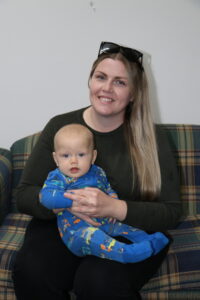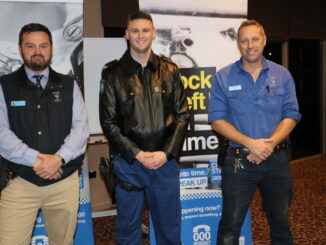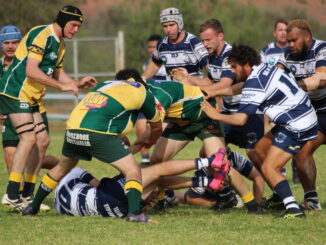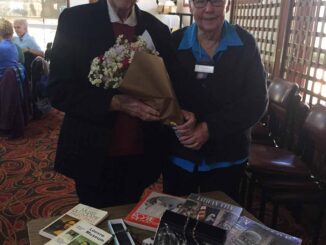
above with her seven month old son,
Hunter) was invited to speak about her
health experiences at the Parliamentary
hearing of the Rural Health Inquiry in
Cobar on April 30.
Alison Pearson, a young, local mother,
was invited to speak at the Parliamentary
Hearing in Cobar last week of her experiences
with the NSW health system after
making one of the 705 submissions to the
Rural Health Inquiry.
She said her submission was by no means a
“shot” at the medical professionals working in
Cobar.
“I am a firm believer that the people we
have working here have the drive and skills
beyond the equipment and resources they are
armed with.
“I speak in support of them as much as us as
patients,” Ms Pearson said.
She praised the local health services staff as
“capable and caring medical professionals”
and was concerned that “they face severe
scrutiny just trying to do their jobs when they
aren’t provided the tools to do it”.
Ms Pearson decided to write of her experiences
after State Member for Barwon Roy
Butler put out the call last December asking
locals to make a submission.
At that time Ms Pearson had not long given
birth to her son Hunter.
While she’d had some health concerns before
she fell pregnant and some complications
during her pregnancy, along with the emergency
hospitalization of her son just 10 days
after his birth, Ms Pearson didn’t believe that
her story was “unique”.
She said she wanted to enlighten the inquiry
panel as to some of the challenges that expectant
mothers, like herself, face both before
and during pregnancy and also after the birth
of their children and also the challenges that
our under-resourced rural health services staff
encounter.
“I wanted to point out the differences between
what larger areas have and what we
don’t,” Ms Pearson told The Cobar Weekly.
In her submission, she outlined her personal
health experiences with specialists in Orange,
Dubbo and Bourke, with the Cobar, Trangie
and Narromine health services, the Dubbo
Hospital Emergency Department and with the
difficulties she faced in the timely access to
procedures such as ultrasounds and other tests.
Ms Pearson also spoke about the large
amount of travel she’d undergone for routine
check-ups and the delivery of her baby and
how the IPTAAS (Isolated Patients Travel and
Accommodation Assistance Scheme) allowance
had been inadequate in covering her numerous
travel and accommodation costs.
Ms Pearson said thankfully her son Hunter
was safely delivered in Orange and also had
excellent care in Dubbo after “a scare” when
he was just 10 days old.
However she said she does not feel safe
knowing her family, friends and the people in
her town are more likely to die unnecessarily
just because of where they choose to live.
“I choose to live in a rural and isolated town
full of wonderful people, gainful employment,
culture, history, community spirit and despite
its location – a lot of opportunity.
So why should location mean lack of services?”
Ms Pearson put to the Parliamentary
Inquiry panel.
“Why should my choice to live in a town
that contributes to our region and our country
in mining, agriculture and infrastructure make
me have any less rights to what I would call
basic health care than someone in a large town
or city?”
She implored the panel to afford Cobar residents
and those living in other rural areas the
same rights given to cities.
“Use our stories to show the government
and even other citizens of NSW, the injustices
we in rural areas face daily.
“I have only shared a snippet of my story
but still hope it opens at least one person’s
eyes to what is really happening in the bush,”
Ms Pearson wrote.
Her submission echoed the submissions
made by a number of other Cobar locals (and
many other rural residents) who have called
for a “fair deal” when it comes to health services.
Page


